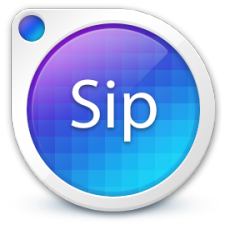 […and by “SIP”…I’m not referring to alcoholic beverages]
[…and by “SIP”…I’m not referring to alcoholic beverages]
See?…this is what I love about writing a blog AND being in such a helpful community of freelance voice-actors! Read on:
Back in July of last year, I wrote another in a long line of articles that generally contribute the the notion that ISDN is being slowly but surely replaced by IP solutions. See: “EVER HEARD OF SIP?”
Little did I know at the time, but Nathan Lang had almost simultaneously written a similar article. I had never met Nathan Lane, nor his blog. Just the other day, though, Nathan composed a long and erudite comment to my original SIP blog, and we’ve since made the connection. Here’s the link to HIS version of the SIP story. (I think it’s much more in-depth than mine, BTW).
Usually, articles on new trends have a shelf life of about 2 months. But Nathan’s article (mine too) still stands the test of time, now, 6 months later. Regardless, I’m re-printing his very recent comment to my July 2014 article as a sort of “update” to the whole affair. Nathan clearly has a wonderful grasp of this issue, and I encourage you to take a few minutes to read his response to my blog (below). He mentions Dave Immer (see my blog of last week), and also talks about Telos Z/IP (‘also wrote about that on these pages).
Well done, Nathan!
CourVO
______________
Hello Dave, I wrote up an article (http://iam.nathanlang.com/ipcodecs) on my blog back in July of 2013 somewhat lamenting the demise of ISDN service in my area. NYC was hit hard by superstorm Sandy and Verizon had problems at its main copper site. Being no stranger to adventure, I purchased the Telos Z/IP One and sought to work out other connection options outside of ISDN my other go-to tech: Source-Connect. I set out to find an alternative specifically for me and others like me: Voiceover Actors. As you might expect, the foray was not without headaches!
In any event, I learned a great deal about SIP and possibilities that the future holds for it. Turns out that much like the ISDN interoperability standards, this tech was (sort of) mandated to guarantee minimum connections with other hardware/software SIP codecs. Widespread use of this technology (while not there yet) could ante up the user base considerably. I reached out to all the major tech manufacturers (both software and hardware alike) to establish minimum working protocols for SIP and RTP connections. Let me tell you, the results were fantastic.
Still, if Studios, Engineers, Directors and Producers don’t embrace the technology sadly it will be relegated to its original intended audiences: STL – Radio Station Studio-Transmitter-Links. Another part of the problem is this: Manufacturers want to insure that you stick with THEIR codecs. So, if you buy a Telos ZIP one, Telos can guarantee rock-solid connections with other ZIP ones. Thankfully, Kirk Harnack and the other guys at Telos keep their ears to the pavement ensuring a well-rounded interoperability plan. I think until ALL the tech plays together nicely. ipDTL connecting to say, a hardware codec (which I’m told there are possibilities now). Until my codec can dial up a SIP or RTP address on say, Skype or Source-Connect NOW, or dial into Mo Dutta’s STL-IP codec. Or, Sound-Streak allowing for SIP connections – well then, this all stays proprietary. Not very useful when its goes up against tried and true ISDN.
Thankfully, bridging services exist like Dave Immer up at Digifon that can link these disparate services together. But truthfully, Producers just want to book in this day and age without any additional drama.
All of the manufacturers I reached out to offered (if it were possible) various ways to establish minimum VO connections (MPEG L3 48K) I use via ISDN. The ones that were realistic were clunky at best, needing a SIP server to establish the connection. Then, there are the firewall (NAT) issues. Lets just say we will leave that for another post. So, in a not so short post – YES this technology is real, YES this technology works. Once the interoperability standards are fully worked out, and actors don’t have to buy into proprietary hardware/software it will be a much different conversation. I urge all vo actors not yet familiar with this tech to reach out with any questions.
______________

